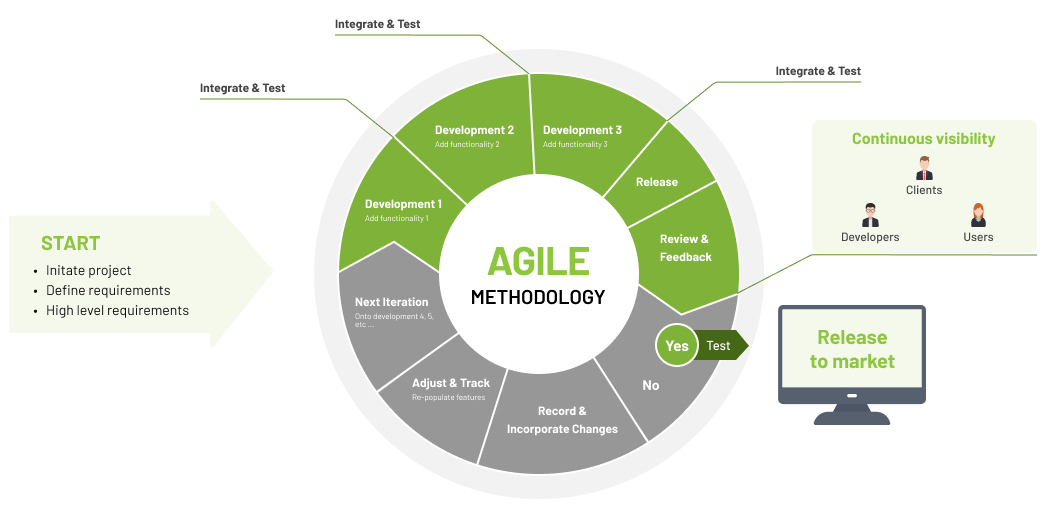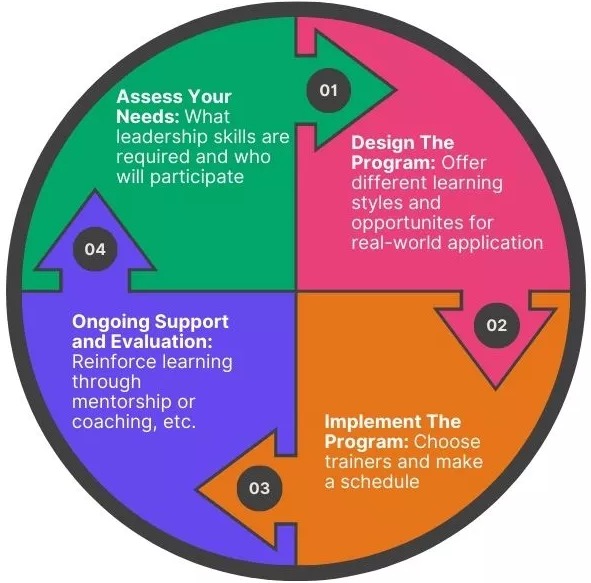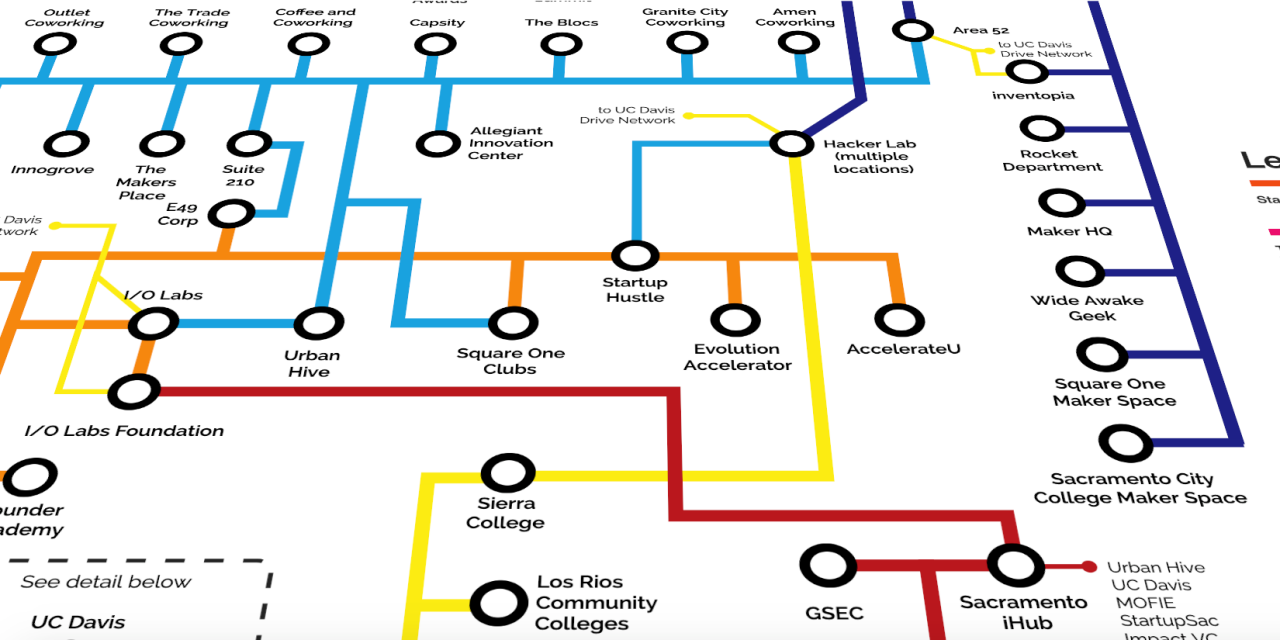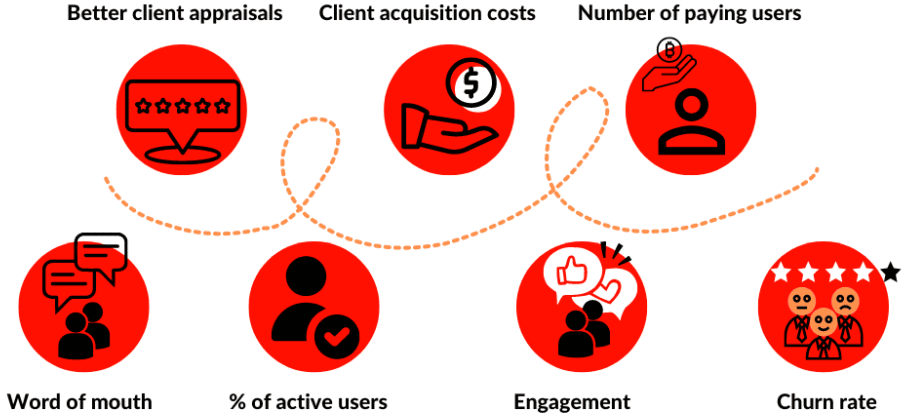The Complete Guide to Your Startup Journey: From Idea to Exit

Loading...

The startup journey represents one of the most challenging yet rewarding paths in modern business, transforming innovative ideas into successful enterprises that create value, solve problems, and generate significant returns. Understanding the intricacies of the startup journey is essential for entrepreneurs who want to navigate the complex landscape of building a business from conception to exit successfully.
Every successful startup journey begins with recognizing that entrepreneurship is fundamentally different from traditional employment or established business operations. The startup journey demands unique skills, mindsets, and strategies that evolve as your venture progresses through distinct phases of development. Whether you're an aspiring entrepreneur with a revolutionary idea or an early-stage founder seeking guidance, mastering the startup journey requires comprehensive understanding of each stage's challenges and opportunities.
The startup journey is characterized by uncertainty, rapid change, and the constant need for adaptation. Unlike established businesses with predictable patterns, the startup journey involves iterative learning, pivoting based on market feedback, and scaling through various growth phases. Successful navigation of the startup journey requires not only business acumen but also emotional resilience, strategic thinking, and the ability to inspire others to join your vision.
Modern startup journeys are increasingly complex, influenced by technological advances, changing market dynamics, global competition, and evolving investor expectations. Today's entrepreneurs must understand digital marketing, data analytics, user experience design, and sophisticated funding mechanisms that didn't exist for previous generations. The contemporary startup journey now encompasses considerations like sustainable practices, social impact, and technology ethics that add layers of complexity to business development. Successful startup journey navigation requires understanding these evolving complexities while maintaining focus on fundamental startup journey principles that drive sustainable business growth and market success.

The startup journey is built upon several core principles that distinguish it from traditional business development approaches. These fundamental startup journey principles guide decision-making, resource allocation, and strategic planning throughout the various stages of your venture's evolution. Understanding these startup journey foundations helps entrepreneurs make better decisions while navigating the complex challenges inherent in every successful startup journey experience.
The startup journey embraces continuous experimentation and learning through rapid iteration cycles. Unlike traditional business planning that relies on extensive upfront research and detailed forecasting, the startup journey emphasizes building, testing, learning, and adapting based on real market feedback. This iterative approach allows entrepreneurs to discover what works while minimizing wasted resources on assumptions that prove incorrect.
Successful startup journeys incorporate the Build-Measure-Learn feedback loop, where entrepreneurs create minimum viable products, measure customer responses, and learn from the data to inform next steps. This cycle repeats throughout the startup journey, becoming more sophisticated as the business grows but maintaining the fundamental principle of continuous improvement based on evidence rather than assumptions. Mastering this iterative startup journey approach enables entrepreneurs to reduce risks while accelerating their learning and market validation throughout their entire startup journey progression.
The iterative nature of the startup journey also applies to team building, business model development, and market positioning. Entrepreneurs must remain flexible and responsive to changing circumstances while maintaining focus on their core mission and value proposition. This balance between adaptability and consistency represents one of the key challenges throughout the startup journey.
The startup journey involves navigating significant uncertainty and managing various types of risk, from market risks to technological challenges and competitive threats. Successful entrepreneurs develop frameworks for assessing and mitigating risks while maintaining the boldness necessary to pursue ambitious goals. Risk management in the startup journey is not about avoiding all risks but about taking calculated risks that offer favorable risk-reward ratios.
Financial risk management throughout the startup journey involves understanding cash flow patterns, planning for various funding scenarios, and maintaining adequate runway to reach key milestones. Effective startup journey financial planning enables entrepreneurs to navigate funding challenges while maintaining operational flexibility. Market risk management requires continuous monitoring of customer needs, competitive landscape changes, and industry trends that could impact your business model or market opportunity. Smart startup journey risk assessment helps entrepreneurs anticipate challenges before they become critical business threats.
Team and operational risks in the startup journey include key person dependencies, cultural challenges as the organization grows, and operational scaling difficulties. Addressing these risks proactively helps ensure that your startup journey continues smoothly through various growth phases and unexpected challenges.

The startup journey can be understood as progressing through five distinct stages, each with unique characteristics, challenges, and success factors. Understanding these critical startup journey stages helps entrepreneurs set appropriate expectations, allocate resources effectively, and measure progress against relevant benchmarks. Each startup journey stage requires different skills, strategies, and mindsets to navigate successfully while building toward long-term business sustainability and growth. Mastering these startup journey transitions enables entrepreneurs to prepare proactively for upcoming challenges and opportunities.
The initial stage of your startup journey focuses on identifying compelling problems worth solving and validating that sufficient market demand exists for potential solutions. This stage requires extensive customer research, market analysis, and problem-solution fit validation before committing significant resources to product development.
During this stage of the startup journey, entrepreneurs conduct customer interviews, surveys, and market research to understand pain points, existing solutions, and unmet needs. The goal is to identify problems that are significant enough, frequent enough, and solvable enough to support a viable business. This research forms the foundation for all subsequent startup journey decisions. Thorough startup journey problem validation prevents entrepreneurs from building solutions that lack market demand, saving time and resources while increasing chances of startup journey success.
Problem validation in the startup journey involves testing assumptions about customer needs, willingness to pay, and solution requirements. Entrepreneurs use various techniques including customer development interviews, landing page tests, and competitive analysis to gather evidence supporting their hypotheses. The key is to remain objective and willing to abandon ideas that don't demonstrate sufficient market validation.
Common challenges during this startup journey stage include falling in love with your initial idea too quickly, failing to talk to enough potential customers, and misinterpreting feedback to support pre-existing beliefs. Successful entrepreneurs maintain curiosity and skepticism, seeking disconfirming evidence and remaining open to pivoting their approach based on market insights.
Metrics for this startup journey stage include the number of customer interviews conducted, problem validation scores, market size estimates, and competitive landscape assessments. Success means moving forward with a validated problem that offers sufficient opportunity to build a meaningful business.
The second stage of the startup journey involves developing solutions that address validated problems and creating minimum viable products (MVPs) that test solution-market fit. This crucial startup journey phase requires balancing product development efficiency with customer feedback incorporation to create solutions that truly meet market needs. Successful startup journey MVP development focuses on core functionality while maintaining speed to market and learning velocity. Strategic startup journey solution development enables entrepreneurs to validate their approach before investing heavily in full product development.
MVP development in the startup journey follows the principle of building the simplest possible version of your solution that allows you to test core hypotheses with real users. The goal is not to create a perfect product but to learn as quickly and cost-effectively as possible whether your proposed solution resonates with target customers.
During this startup journey stage, entrepreneurs focus on core functionality that addresses the primary problem while avoiding feature creep that delays launch and increases development costs. User experience design becomes critical, as first impressions significantly impact customer willingness to continue using and recommend your solution.
Testing and iteration cycles accelerate during this startup journey stage, with regular user feedback sessions, usage analytics review, and feature prioritization based on customer behavior data. Entrepreneurs learn to distinguish between what customers say they want and what their behavior actually demonstrates they value.
Common pitfalls in this startup journey stage include perfectionism that delays launch, building features customers don't actually need, and insufficient user testing before broader market introduction. Success requires discipline to ship early and often while maintaining quality standards that preserve user trust and engagement.

The third stage of the startup journey focuses on achieving product-market fit, where your solution demonstrates clear value for a defined customer segment that is willing to pay for your offering. This critical startup journey milestone represents a crucial inflection point where startups either gain momentum or struggle to find sustainable growth. Achieving startup journey product-market fit requires continuous refinement based on customer feedback and market data. Successful startup journey market entry strategies combine product optimization with customer acquisition experimentation to validate business model viability.
Product-market fit in the startup journey is evidenced by strong customer retention, organic growth through referrals, increasing usage patterns, and customer willingness to pay premium prices for your solution. Achieving this fit often requires multiple iterations of both product features and market positioning based on customer feedback and behavior analysis.
Customer acquisition strategies become crucial during this startup journey stage, as entrepreneurs test various channels and tactics for reaching and converting target customers. This experimentation helps identify scalable acquisition methods that will support future growth phases while maintaining acceptable customer acquisition costs.
Revenue model validation occurs throughout this startup journey stage, as entrepreneurs test pricing strategies, payment models, and value propositions that maximize both customer satisfaction and business sustainability. Finding the right balance between customer value and business viability is essential for long-term success.
Metrics for this startup journey stage include customer retention rates, net promoter scores, monthly recurring revenue growth, customer acquisition costs, and customer lifetime value ratios. Success means demonstrating clear product-market fit with evidence of sustainable, scalable demand for your solution.
The fourth stage of the startup journey involves scaling operations, expanding market reach, and building organizational capabilities to support rapid growth. This challenging startup journey phase presents unique challenges around maintaining quality while increasing speed and preserving culture while growing team size. Effective startup journey scaling requires systematic approaches to operational excellence and organizational development. Strategic startup journey growth management enables businesses to expand sustainably while maintaining the agility and innovation that drove their initial success.
Scaling operations in the startup journey requires implementing systems, processes, and infrastructure that can handle increasing volume without proportional cost increases. This includes technology systems, customer support operations, quality assurance processes, and financial management capabilities that support larger business scale.
Team building accelerates during this startup journey stage, as entrepreneurs hire specialized talent, develop management capabilities, and create organizational structures that enable effective collaboration and decision-making. Building strong company culture becomes critical for maintaining alignment and performance as team size grows.
Market expansion strategies in the startup journey may include geographic expansion, new customer segments, additional product offerings, or partnership development that leverages existing capabilities while accessing new growth opportunities. These expansions require careful planning and resource management to avoid overextension.
Financial management becomes increasingly sophisticated during this startup journey stage, with detailed budgeting, cash flow forecasting, and performance measurement systems that support data-driven decision-making and investor reporting requirements.
The final stage of the startup journey involves achieving business maturity with sustainable operations and planning for eventual exit opportunities that maximize value for founders, employees, and investors. This culminating startup journey phase requires strategic thinking about long-term positioning and exit optimization. Successful startup journey completion often involves preparing for acquisition, IPO, or other exit strategies that reward stakeholders for their journey investment. Thoughtful startup journey exit planning ensures that businesses maximize their value while preserving their mission and impact.
Business maturity in the startup journey is characterized by predictable revenue streams, efficient operations, strong market position, and organizational capabilities that can operate effectively without constant founder involvement. Achieving this maturity positions the business for various exit opportunities.
Exit planning throughout the startup journey involves understanding various exit options including acquisition, merger, initial public offering, or management buyout scenarios. Each option requires different preparation strategies and timeline considerations that influence business development priorities.
Strategic positioning for exit in the startup journey includes building intellectual property portfolios, developing strong customer relationships, creating defensible competitive advantages, and maintaining financial performance that attracts potential acquirers or public market investors.
Legacy planning considerations in the startup journey address the long-term impact of your business on customers, employees, industry, and society. Many successful entrepreneurs use exit opportunities to fund new ventures or philanthropic initiatives that extend their impact beyond the original startup journey.

The startup journey presents numerous challenges that can derail even promising ventures if not addressed proactively. Understanding these common obstacles and developing strategies to overcome them is essential for maintaining momentum and achieving long-term success.
Securing adequate funding throughout the startup journey requires understanding different funding sources, investor expectations, and financial planning strategies that support sustainable growth. Many startups fail not because their ideas lack merit but because they run out of cash before achieving sustainability.
Bootstrapping strategies in the early startup journey focus on minimizing costs, maximizing revenue generation, and extending runway through efficient resource utilization. This approach builds discipline and forces focus on customer value creation rather than external funding dependence.
Angel investor and venture capital funding in the startup journey involves understanding investor criteria, preparing compelling pitches, and negotiating terms that align with long-term business goals. Different funding sources are appropriate for different startup journey stages and business models.
Alternative funding options throughout the startup journey include crowdfunding, revenue-based financing, grants, and strategic partnerships that provide capital while preserving equity and control. These options have become increasingly sophisticated and accessible for various types of businesses.
Cash flow management throughout the startup journey requires detailed financial planning, scenario modeling, and performance monitoring that enables proactive decision-making about spending, hiring, and growth investments. Many successful startups maintain multiple financial scenarios to prepare for various market conditions.
Building effective teams throughout the startup journey involves attracting talented individuals, creating compelling culture, and developing leadership capabilities that scale with business growth. Team challenges often become the limiting factor for startup success as businesses grow beyond founder capabilities.
Hiring strategies for the startup journey balance immediate needs with long-term growth potential, cultural fit with skill requirements, and compensation constraints with talent attraction needs. Early hiring decisions significantly impact company culture and future team development.
Leadership development in the startup journey requires founders to evolve from individual contributors to managers to strategic leaders as their businesses grow. This evolution often requires external coaching, mentorship, or leadership training to develop necessary capabilities.
Equity and compensation planning throughout the startup journey must balance team motivation with founder control and investor expectations. Employee stock option plans, performance-based compensation, and career development opportunities help attract and retain key talent.
Cultural development during the startup journey establishes values, behaviors, and practices that guide decision-making and collaboration as teams grow. Strong culture becomes increasingly important for maintaining alignment and performance as direct founder supervision becomes impossible.
Competitive challenges throughout the startup journey require ongoing market analysis, differentiation strategy development, and innovation that maintains market position despite increasing competition. Markets that appear uncrowded initially often attract numerous competitors as demand validation occurs.
Competitive analysis in the startup journey involves monitoring direct competitors, substitute solutions, and potential market entrants that could impact your business model or market share. This analysis informs product development, pricing strategies, and marketing positioning decisions.
Differentiation strategies throughout the startup journey focus on creating unique value propositions, building defensible competitive advantages, and establishing customer loyalty that protects against competitive pressure. Sustainable differentiation often comes from operational excellence, customer relationships, or technological innovation.
Innovation and development throughout the startup journey must balance current customer needs with future market evolution, competitive response, and technological advancement. Maintaining innovation while executing current business plans requires careful resource allocation and strategic planning.
Market positioning in the startup journey communicates unique value propositions, target customer focus, and competitive advantages through marketing messages, product features, and customer experience design. Strong positioning helps customers understand why they should choose your solution over alternatives.

Success throughout the startup journey requires developing specific skills and mindsets that enable entrepreneurs to navigate uncertainty, make effective decisions, and inspire others to join their vision. These capabilities often matter more than initial business ideas or market conditions.
Resilience throughout the startup journey involves bouncing back from setbacks, learning from failures, and maintaining motivation despite numerous challenges and disappointments. Most startup journeys include multiple failures, rejections, and obstacles that test founder commitment and determination.
Adaptability in the startup journey requires remaining flexible about methods while staying committed to core mission and values. Market conditions change, customer needs evolve, and competitive landscapes shift, requiring entrepreneurs to adjust strategies while maintaining strategic focus.
Stress management throughout the startup journey involves developing healthy coping mechanisms, maintaining work-life balance, and seeking support when needed. The intense pressure and uncertainty of startup development can impact mental health and decision-making quality without proper management.
Learning orientation during the startup journey emphasizes continuous improvement, feedback seeking, and skill development that enables entrepreneurs to grow alongside their businesses. The skills needed in early stages often differ significantly from those required later in the startup journey.
Strategic thinking throughout the startup journey involves understanding long-term implications of current decisions, anticipating market changes, and positioning businesses for future opportunities. Short-term tactical excellence must be balanced with long-term strategic positioning.
Decision-making frameworks for the startup journey help entrepreneurs evaluate options, assess risks, and choose courses of action under uncertainty. These frameworks become increasingly important as decision complexity and impact increase throughout business development.
Prioritization skills during the startup journey enable entrepreneurs to focus resources on highest-impact activities while managing numerous competing demands for attention and investment. Effective prioritization often determines the difference between startup success and failure.
Systems thinking in the startup journey involves understanding how different business components interact, how changes in one area affect others, and how to optimize overall performance rather than individual metrics. This perspective becomes crucial as businesses grow more complex.
Communication skills throughout the startup journey include inspiring others to join your vision, clearly explaining complex ideas, and building relationships with customers, employees, investors, and partners. Strong communication often determines funding success, team performance, and market adoption.
Leadership development during the startup journey involves inspiring others, making difficult decisions, and creating environments where talented individuals can perform their best work. Leadership challenges evolve as teams grow and business complexity increases.
Networking throughout the startup journey builds relationships with mentors, advisors, investors, customers, and peers who can provide guidance, opportunities, and support during challenging times. Strong networks often provide crucial resources and opportunities.
Storytelling skills in the startup journey help entrepreneurs communicate their vision, attract customers and employees, and secure funding through compelling narratives that make abstract concepts tangible and inspiring. Great stories often differentiate similar businesses in competitive markets.

Successfully navigating the startup journey requires access to appropriate resources, tools, and support systems that provide guidance, efficiency, and competitive advantage. Modern entrepreneurs have unprecedented access to startup journey resources through digital platforms, communities, and educational programs.
Books and publications about the startup journey provide fundamental knowledge, case studies, and frameworks developed by successful entrepreneurs and business researchers. Classic texts like "The Lean Startup," "Zero to One," and "The Hard Thing About Hard Things" offer essential insights for different startup journey stages.
Online courses and educational platforms offer structured learning about specific startup journey topics including business model development, marketing strategies, financial management, and leadership skills. Platforms like Coursera, Udemy, and specialized startup education providers offer comprehensive curriculum.
Podcasts and video content about the startup journey provide ongoing learning opportunities through interviews with successful entrepreneurs, investor insights, and industry trend analysis. Regular consumption of quality startup journey content helps entrepreneurs stay current with best practices and market developments.
Conferences and events throughout the startup journey offer networking opportunities, learning sessions, and exposure to new ideas, tools, and potential partners. Industry conferences, startup competitions, and local entrepreneur meetups provide valuable community connections.
Project management tools for the startup journey include platforms like Asana, Trello, and Monday.com that help teams organize work, track progress, and collaborate effectively across various business functions. Effective project management becomes increasingly important as teams grow.
Customer relationship management (CRM) systems throughout the startup journey help track customer interactions, manage sales processes, and analyze customer behavior patterns. Tools like HubSpot, Salesforce, and Pipedrive offer various features for different business needs and budgets.
Financial management tools for the startup journey include accounting software, budgeting platforms, and financial modeling tools that help entrepreneurs track performance, plan cash flow, and prepare investor reports. QuickBooks, FreshBooks, and specialized startup financial tools provide necessary capabilities.
Marketing and analytics tools throughout the startup journey help entrepreneurs understand customer behavior, optimize marketing campaigns, and measure business performance. Google Analytics, social media management platforms, and email marketing tools provide essential marketing infrastructure.
Accelerators and incubators throughout the startup journey provide structured programs that offer mentorship, funding, and resources in exchange for equity. Programs like Y Combinator, Techstars, and industry-specific accelerators have helped thousands of startups achieve success.
Angel investor networks during the startup journey connect entrepreneurs with individual investors who provide capital, expertise, and connections. Understanding angel investor criteria and building relationships with relevant investors is crucial for early-stage funding success.
Venture capital firms throughout the startup journey offer larger funding rounds for businesses that demonstrate significant growth potential and market opportunity. Building relationships with relevant VC firms and understanding their investment criteria is essential for scaling funding.
Government programs and grants for the startup journey provide non-dilutive funding, tax incentives, and support services that help entrepreneurs develop their businesses without giving up equity. Small Business Administration programs, innovation grants, and economic development initiatives offer various support options.

Success measurement throughout the startup journey requires understanding relevant metrics, benchmarks, and milestones that indicate progress toward business goals. Different startup journey stages require different measurement approaches, and successful entrepreneurs adapt their metrics as their businesses evolve.
Early-stage startup journey metrics focus on validation and learning rather than financial performance. Customer interview numbers, problem validation scores, and market research quality indicators help entrepreneurs understand whether they're addressing real market needs with viable solutions.
Growth-stage startup journey metrics emphasize customer acquisition, retention, and revenue development. Monthly recurring revenue, customer acquisition cost, customer lifetime value, and churn rates become primary indicators of business health and growth potential.
Scaling-stage startup journey metrics include operational efficiency, team performance, and market expansion indicators. Revenue per employee, customer satisfaction scores, market share measurements, and operational margin improvements show whether the business is scaling effectively.
Maturity-stage startup journey metrics focus on sustainability, profitability, and competitive position. Return on investment, market leadership indicators, innovation pipeline metrics, and long-term customer relationship quality demonstrate business maturity and exit readiness.
Revenue metrics throughout the startup journey include total revenue, recurring revenue, revenue growth rates, and revenue quality indicators that show whether the business is generating sustainable income from satisfied customers. Revenue consistency and predictability become increasingly important as businesses mature.
Profitability analysis during the startup journey examines gross margins, operating margins, and path to profitability timelines that demonstrate business model viability. While early-stage startups may prioritize growth over profitability, understanding unit economics is always crucial.
Cash flow management throughout the startup journey requires monitoring burn rates, runway calculations, and cash generation capabilities that ensure business continuity. Many otherwise successful startups fail due to cash flow management issues rather than fundamental business problems.
Investment and valuation tracking during the startup journey helps entrepreneurs understand their business's financial progress and market value. Regular valuation exercises prepare businesses for funding rounds and eventual exit opportunities.
Market share analysis throughout the startup journey measures business penetration within target markets and competitive position relative to alternative solutions. Growing market share often indicates strong product-market fit and competitive advantage development.
Customer satisfaction metrics during the startup journey include Net Promoter Scores, customer retention rates, and customer success indicators that show whether the business is creating real value for its target market. High customer satisfaction often predicts sustainable growth.
Competitive advantage measurement throughout the startup journey assesses differentiation sustainability, barriers to entry, and unique value proposition strength. Defensible competitive advantages often determine long-term business success and exit value.
Brand recognition and reputation tracking during the startup journey monitors market perception, thought leadership development, and brand value creation that supports premium pricing and customer loyalty. Strong brands often command higher valuations and better exit opportunities.

The startup journey represents one of the most challenging yet rewarding paths available to modern entrepreneurs. Successfully navigating this journey requires understanding each stage's unique challenges, developing appropriate skills and mindsets, and building support systems that provide guidance and resources throughout the process.
Every startup journey is unique, influenced by market conditions, founder capabilities, team dynamics, and countless other factors that make prediction difficult and planning essential. While no roadmap can guarantee success, understanding common patterns, challenges, and success factors significantly improves the odds of building a successful business from initial idea to eventual exit.
The startup journey demands continuous learning, adaptation, and resilience in the face of uncertainty and setbacks. Entrepreneurs who embrace this challenge with appropriate preparation, support systems, and mindset are best positioned to create meaningful businesses that solve important problems while generating significant returns for all stakeholders.
Modern startup journeys benefit from unprecedented access to resources, tools, and knowledge that previous generations of entrepreneurs couldn't access. From educational content and technology platforms to funding networks and support communities, today's entrepreneurs have more opportunities than ever to succeed in their startup journeys.
Success in the startup journey ultimately depends on creating real value for customers while building sustainable, scalable business models that can compete effectively in dynamic markets. Entrepreneurs who focus on customer needs, maintain financial discipline, and build strong teams while navigating the inevitable challenges are most likely to achieve their startup journey goals.
The startup journey continues evolving as technology advances, markets change, and new opportunities emerge. Entrepreneurs who stay informed about trends, maintain flexibility in their approaches, and commit to continuous improvement will be best positioned to succeed regardless of how the startup landscape continues to develop.
By understanding the stages, challenges, and success factors outlined in this comprehensive guide, entrepreneurs can approach their startup journey with greater confidence, better preparation, and higher likelihood of achieving their goals while creating meaningful impact in their chosen markets.
Looking for more email troubleshooting and management guidance? Check out these related articles:
Comprehensive guide to recover forgotten email passwords for Gmail, Outlook, Yahoo, AOL, and iCloud. Step-by-step instructions, troubleshooting tips, and security best practices to regain access to your email accounts.
📖 Guides
📧 Forgot email password
Discover how AI for email communication can save time, improve quality, and personalize interactions. Learn about top AI email tools, implementation tips, and future trends.
📖 Guides
🤖 Ai
Discover the top AI email writer tools of 2025 to save time, improve email quality, and boost your response rates. Compare features, pricing, and use cases for the leading solutions.
📖 Guides
🤖 Ai